Copyright 2015 by Jennifer Browne Photographs by Wild Honey Art House All rights reserved. No part of this book may be reproduced in any manner without the express written consent of the publisher, except in the case of brief excerpts in critical reviews or articles. All inquiries should be addressed to Good Books, 307 West 36th Street, 11th Floor, New York, NY 10018. Good Books books may be purchased in bulk at special discounts for sales promotion, corporate gifts, fund-raising, or educational purposes. Special editions can also be created to specifications. For details, contact the Special Sales Department, Good Books, 307 West 36th Street, 11th Floor, New York, NY 10018 or .
Good Books is an imprint of Skyhorse Publishing, Inc., a Delaware corporation. Visit our website at www.goodbooks.com. 10 9 8 7 6 5 4 3 2 1 Library of Congress Cataloging-in-Publication Data is available on file. Cover design by Jenny Zemanek Cover photo by Wild Honey Art House Print ISBN: 978-1-68099-061-4 Ebook ISBN: 978-1-68099-106-2 Printed in China The publisher and author have made their best effort in preparing this book with care and accuracy, and it is presented in good faith. But they make no representations or warranties with respect to the completeness or accuracy of the contents of this book. The advice and strategies contained in these materials may not be suitable for your situation.
Consult with a professional where appropriate. Neither the author nor the publisher shall be liable for any commercial damages or loss of profit, including but not limited to special, consequential, or incidental damages. A CKNOWLEDGMENTS Thank you so much to Skyhorse Publishing, and specifically Abigail Gehring, for loving the intent and idea behind this book. Thanks for sharing in my enthusiasm and believing in my desire to find out exactly how to make medicinal teas and why theyre an important alternative to conventional Big Pharma medications. I am so grateful to have received thoughtful and patient feedback from Katolen Yardley, MNIMH, in regards to the relationship between herbs and everyday use. A very heartfelt and sincere thanks to Tanya of Wild Honey Art House for excitedly taking beautiful photographs of tea and herbs and spices and ceramics and pottery.
Im still sorry for breaking that dish. And that other dish. Lastly, thanks to Judy, Gary, Tanya, and Louise for donating an incredible variety of gorgeous props to showcase the lovely teas. Im a lucky girl to receive such fabulous support.  D EDICATION For those who search for healthier alternatives and choose to question and seek honest answers.
D EDICATION For those who search for healthier alternatives and choose to question and seek honest answers.  C ONTENTS
C ONTENTS 
 I NTRODUCTION Tea began as a medicine and grew into a beverage.
I NTRODUCTION Tea began as a medicine and grew into a beverage.  C ONTENTS
C ONTENTS 
 I NTRODUCTION Tea began as a medicine and grew into a beverage.
I NTRODUCTION Tea began as a medicine and grew into a beverage.
Okakura Kakuz, The Book of Tea , 1906 My Herbal Obsession My fascination with medicinal teas probably coincided with discovering I could solve my decade-long irritable bowel syndrome (IBS) with food. Once you experience the healing properties of plants, your eyes become wide open to the endlessly helpful possibilities of them. Realizing that pharmaceuticals are a far cry from living nutrients forced me to take a good hard look into my medicine cabinet and question the commercialized medications I was accustomed to purchasing year after year for myself and my family. Ive discovered that herbal teas can completely replace and do a better job than most of the drugs we see being advertised on our televisions or pushed by our family doctors. Some of the more common medications one can trade for herbal teas include commercialized analgesics, anti-inflammatories, anti-nausea medications, laxatives, cough drops, and cough syrups. Im sure many readers can agree that these medications are desired and necessary every now and then, but by using the correct herbs in the proper dosage, we can make our own medicinal teas that offer the same benefits as pharmaceuticals, only better .
A recent study conducted on natural anti-inflammatories and pain relievers concluded that the evaluation of nutraceutical preparations with appropriately designed controlled studies has exploded in recent years. There is now a greater degree of confidence based on controlled study design and improved quality of the investigators that has strengthened positive findings found using natural compounds to treat diseases. It is important for healthcare practitioners to learn about these scientific studies to counsel patients who are taking various dietary Now that more and more doctors and health care providers are becoming attuned to the fact that medicinal herbs can heal with minimal side effects and expense, an incredible increase in the amount of peer-reviewed, scientific studies supporting practical use and positive conclusions are being published at a rapid pace. This is extremely encouraging! Why Tea? Quality herbal teas are ideal for treating a variety of ailments for the following reasons: theyre cost effective, quickly absorbable, and contain no artificial dyes, colors, or preservatives. Theyre also simple to make, easy to tweak according to ones palate and personal preferences, and abundantly beneficial in so many ways.  Unfortunately, there are many commercialized tea companies that add a lot of filler to their blends and produce individual portions wrapped in bleached tea bags, so the responsibility falls on each of us, the consumers, to be mindful of this.
Unfortunately, there are many commercialized tea companies that add a lot of filler to their blends and produce individual portions wrapped in bleached tea bags, so the responsibility falls on each of us, the consumers, to be mindful of this.
By requesting labels and executing our own research, we reap huge rewards when it comes to the quality of our concoctions that ultimately determine our health outcomes. It is important to urge pregnant women, nursing mamas, and anyone with known herbal allergies to be cautious and consult an herbalist prior to drinking medicinal teas in order to be certain to avoid any possible interactions and unfavorable side effects, but it should also be noted that prescription medications that are typically deemed safe are not the best solutions to most of our health problems. Exploring medicinal teas as an alternative to commercial drug preparations is often a wise choice! Many opponents of herbal medicine cite lack of research or proof of effectiveness as a reason to abstain, but the reality is that conventional antibiotics arent as resilient as they once were due to overuse and bacterial recognition. Many popularly prescribed pharmaceuticals contradict one another, and the number of deaths per year in the United States that are directly related to improperly administered and prescribed medication is astounding. It is time to reintroduce a safer way of treating illnessone that has been around for much longer than modern-day medicine: herbal tea. In conducting hundreds of hours of peer-reviewed research while writing this book, I came across thousands of studies that concluded medicinal herbs have countless health benefits.

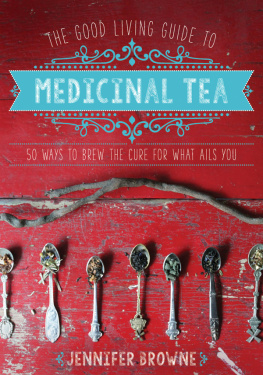

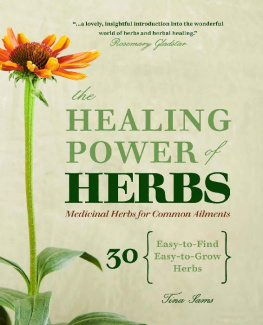
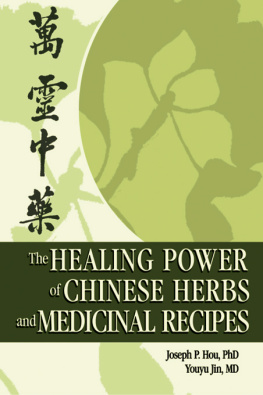
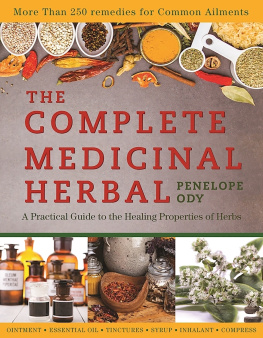
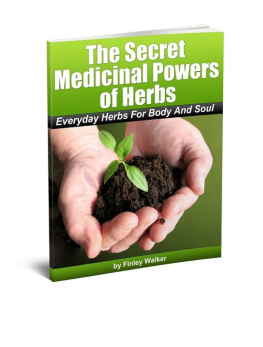
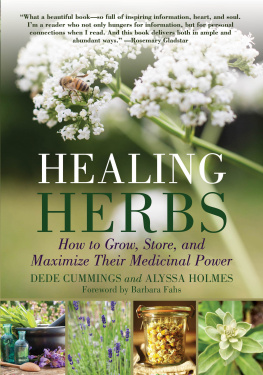
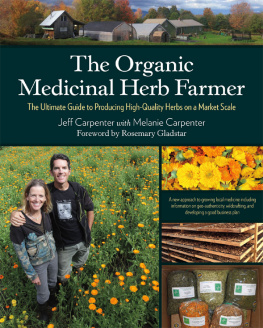
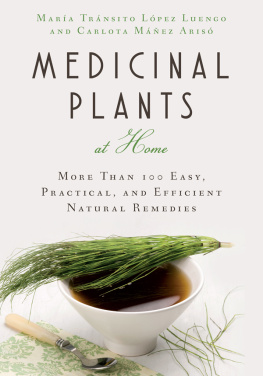
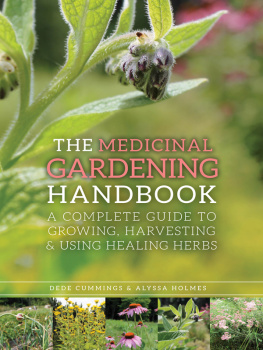

 D EDICATION For those who search for healthier alternatives and choose to question and seek honest answers.
D EDICATION For those who search for healthier alternatives and choose to question and seek honest answers.  C ONTENTS
C ONTENTS 
 I NTRODUCTION Tea began as a medicine and grew into a beverage.
I NTRODUCTION Tea began as a medicine and grew into a beverage.  Unfortunately, there are many commercialized tea companies that add a lot of filler to their blends and produce individual portions wrapped in bleached tea bags, so the responsibility falls on each of us, the consumers, to be mindful of this.
Unfortunately, there are many commercialized tea companies that add a lot of filler to their blends and produce individual portions wrapped in bleached tea bags, so the responsibility falls on each of us, the consumers, to be mindful of this.